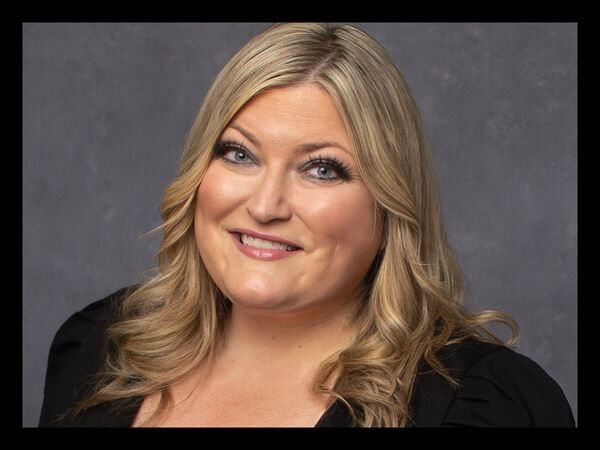Venezuelans in 'reverse migration' pushed to new perils in effort to return home
News > International News

Audio By Carbonatix
10:01 AM on Monday, September 22
By MATIAS DELACROIX and MEGAN JANETSKY
JAQUE, Panama (AP) — As the boat bounced across choppy Pacific waters, Mariela Gómez and her two children huddled for 17 hours on top of sloshing gas tanks, uncertain of what lay ahead in the dense jungle.
The 36-year-old Venezuelan mother was among a million migrants who journeyed across the continent in recent years in the hopes of reaching the United States. But with legal pathways slashed under U.S. President Donald Trump, she and thousands of other Venezuelans are now trying to make their way back in a “reverse migration.”
Over 14,000 migrants, mostly from Venezuela, have returned to South America since Trump’s immigration crackdown began, according to figures from Colombia, Panama and Costa Rica.
Struggling to buy even food after failed attempts to stay in the U.S., Gómez can't afford the $280-per-person charge for the more frequented Caribbean route to Colombia. So a growing number of migrants like her are boarding boats that ferry cargo between Panama's capital and Colombia's jungle-clad Pacific coast.
The new route is half the price and twice as dangerous.
“We lost hope,” she said. “We’re trying to return, but we don’t have the money to go back.”
In recent years, migrants fleeing the crisis in Venezuela once crossed the perilous jungles of the Darien Gap between Colombia and Panama and waited months in Mexico for an asylum appointment in the U.S. But when Trump took office, many of those people were left stranded in Mexico. Without other options, they turned back, winding down through Central America on buses.
They chug aboard slow-moving cargo boats packed with merchandise along Panama’s other coast in the Pacific Ocean for days, before boarding precarious motor boats that shoot along the coast. The boats are often packed with 15 to 30 people. Hundreds so far have traveled the route, according to a United Nations report released earlier this month.
“People arrive with very few resources, some with only the clothes on their backs,” said 56-year-old boat driver Nacor Rivera. “Many can’t pay for the boat ride, so I’ve had to help a lot of them, carrying them for free.”
In June, one of those boats carrying 38 people crashed at sea, injuring a pregnant woman, children and a person with a disability who lost their wheelchair.
They land in jungled swathes of Colombia, a region rife with armed groups that prey on migrants, where there are no shelters and little access to medical care, according to the U.N. report.
“We urge authorities to care for people in this reverse migration to stop them from falling into criminal and trafficking networks of illegal armed groups, and turn them into victims of even greater violence," said Scott Campbell, a U.N. human rights officer in Colombia, in a statement.
Migrants land with serious cases of dehydration, burns, malnutrition and mental health issues. Those without money can “remain stranded in inhumane conditions,” the report said.
That was the case of Jesús Aguilar, a Venezuelan migrant who was stuck in a rural Panamanian town in the Darien Gap for two months. He managed to slowly scrounge together money to pay for a boat ride to Colombia after a local offered him work cleaning their farm.
Others, like Gómez’s family, spent months in Panama City saving money to travel back to Venezuela, but when they came up short, they decided to take the cheaper route along the Pacific.
Sitting on top of gasoline tanks, Gómez cradles her 5-year-old son swaddled in blankets. The family fled the South American country in 2017 in the face of a spiraling economy and mounting government repression.
For years, she lived in Colombia and Peru, like millions of other Venezuelans who have fled the country in recent years. Unable to make ends meet in countries that have struggled to manage the crush of vulnerable people, Gómez began to look to the U.S. with hopes of building a new life.
After crossing the Darien Gap and later the U.S.-Mexico border to Texas in October, her family was quickly swept up by the U.S. Border Patrol and handed over to Mexican authorities who dropped them in southern Mexico.
Shortly after, she decided her only way forward was to return home. Without work and with cartels preying on migrants like her, staying in southern Mexico wasn't an option.
At least in Venezuela she has her home and her family, she said.
“It would have been risking our lives and risking the life of my child” to keep going, Gómez said. “We're just hoping God protects us.”
Now, as she returns home, she's not sure what she will find in Venezuela, which has faced an ongoing crackdown on dissent by the government following last year's contested elections.
She said if the government of President Nicolás Maduro remains in power, staying in her country doesn't seem like an option. “I would have to leave my country again, maybe go to Chile,” she pondered. “I would have to try my luck in another country. Again."
“But right now, we just have to focus on getting to Colombia,” she added.
___
Janetsky reported from Mexico City.
____
Follow AP’s coverage of Latin America and the Caribbean at https://apnews.com/hub/latin-america







